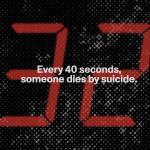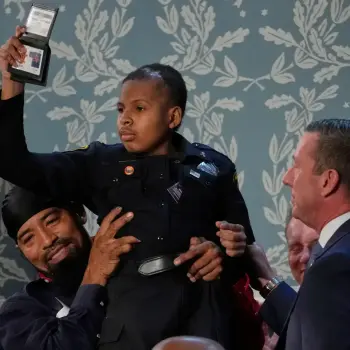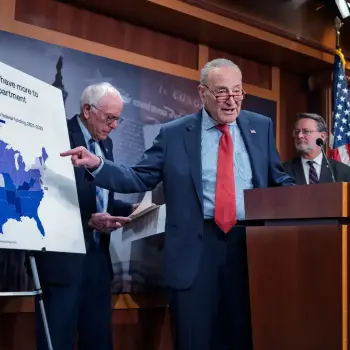On most days, the earthquake that killed more than 2,100 in Morocco—the number is expected to rise—would be the subject of today’s Daily Article. Conversely, given my perennial hope that this will finally be the year for the Dallas Cowboys, I might reflect on their decisive season-opening victory last night in New York. Or I might discuss the faith of Coco Gauff, who won the US Open at the age of nineteen and is a very public Christian.
But on 9/11, it feels wrong to focus on anything but 9/11. Today is the only anniversary in American history known simply by a number. We don’t refer to Independence Day as “7/4,” to Pearl Harbor as “12/7,” or to any other significant event I can recall through its numeric designator.
But see the numbers “9/11,” and if you’re old enough, you’ll flash back to where you were when the planes hit the buildings. You’ll revisit the horror of the burning skyscrapers, the people jumping to their deaths, the towers collapsing.
A few days ago, two more victims of the attack on the World Trade Center were identified through DNA technology. A total of 2,753 people were killed in the towers and planes, many of whom have yet to be identified.
What are your emotions this morning? What would you like me to say on this hard day?
Let’s take a moment to reflect on three attributes of God that are especially relevant today.
God offers empathy in our grief
The youngest flight passenger who died on this day in 2001 was Christine Hanson, a two-year-old on her way to Disneyland on United Airlines Flight 175. The oldest was Robert Norton, age eighty-two, who was on American Airlines Flight 11. And we must not forget the 343 firefighters who died on 9/11.
In a seminary counseling class, I was taught never to say to a grieving person, “I know how you feel.” Even if my circumstances are similar to theirs, I cannot know how they are processing what they are experiencing.
But God can.
Not only does he know us better than we know ourselves, he also knows personally what it is like to lose a loved one. He watched his Son suffer the cruelest, most torturous form of execution ever devised. As a result, he can grieve as we grieve, no matter the reason for our pain. He walks where we walk and feels what we feel (cf. Isaiah 43:1–3).
Why, then, doesn’t he prevent our suffering and tragedy? This leads to our second fact:
God offers reason in our confusion
Billy Graham wrote: “I have asked myself hundreds of times why God sometimes allows evil to flourish—and I don’t have the full answer.” Nor do I. But I do know that Jesus is the “Word” (John 1:1)—the Greek word, logos, was used to describe the force of reason that holds the universe together (cf. Colossians 1:16–17).
I know that God calls us to “reason together” with him (Isaiah 1:18). At the same time, I know that our finite, fallen minds cannot conceivably understand his vast omniscience (Isaiah 55:8–9), so we should not be surprised when we face mysteries he cannot explain to us any more than I could explain epistemology to my four-year-old grandson.
And I know that the best way to handle what I don’t know about God is to trust what I do know about him. Spiritual truth is relational in nature, which means we must enter into a personal relationship with God to truly know him.
I could not understand marriage or fatherhood before I was married and later became a father. So it is with my loving Father—the less I understand his ways, the more I must trust him. This leads to our third fact:
God offers hope in our fear
Theater tickets from the night Abraham Lincoln was shot are now up for auction and are expected to sell for more than eighty thousand dollars. Our nation’s greatest president had no idea before the play began that he would not see its end.
No one who boarded the four doomed airliners on this morning in 2001—apart from the nineteen terrorists—knew what would soon happen. So it can be with you and me today. This could be the last Daily Article you read, or the last one I write. One morning will be our last morning. I cannot guarantee that it is today, but I cannot guarantee that it is not.
This is why David’s testimony is so vital: “Blessed be the Lord, who daily bears us up; God is our salvation” (Psalm 68:19). We are to pray for our “daily bread” because it is the only bread we need or God can supply (Matthew 6:11). No matter what this day brings, our Lord promises: “I will make a way in the wilderness and rivers in the desert” (Isaiah 43:19).
Name your fears and trust them to your Father’s hope by faith.
A personal milestone of eternal significance
Today’s somber anniversary was preceded for me this year by a milestone of eternal significance: I became a Christian fifty years ago last Saturday. In the decades since, my father and mother died, my wife and I walked with our older son through his cancer, and we are walking now with our younger son as his younger son undergoes leukemia treatment.
However, whatever my circumstances, across these fifty years it has remained true that “God is our refuge and strength” (Psalm 46:1). On the Sunday after 9/11, I preached from this text and quoted Martin Luther’s famous hymn, “A Mighty Fortress Is Our God.” I invited our congregation to claim its truth as ours.
Would you do the same with me again today?












